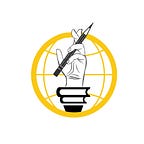International context: How is France concerned with burned in Amazonia but still slaving African countries with monetary politics?
by: Felipe Lipster
Africa, the forgotten part of France
In a historical introduction, in 1664 French arrived in Senegal to start an exploration in Africans’ territory and continued to expand this exploration, dividing it in colonies, building a materialist state [1]. Simultaneously, they developed bureaucratic institutions and incremented in Africa’s society the “French spirit of nationality”, using this continent to explore the population and its precious wealth.
Even with the freedom of the continent in 1975, the gallic government has a direct invention in these states in Africa. From wars to politics, you will see some french influence there.
The Monetary Issue: Slavling politics
The central bank of the French holds possession of the monetary reserve of 14 countries in Africa, ergo, they print money for them and only the central bank can control it. [2]
We call this currency “Franco”, but it’s not the Franco that the French government used in its transactions and market, they divided the currency just for the 14 countries in Africa, with this, you can control monetary politics and leave them out of the strong market currencies.
It wasn’t enough, the lack of freedom in the management of your own reserve and currency, they only receive parts of this reserve in the form of credit and loan.
In exchange for monetary control, the French government would guarantee a stable currency, but it’s not that we saw. The only thing that we can see is, the countries in Franco’s zone, have poverty, the central banks of their respective countries cannot dictate their economy policies freely, consequently, industries and entrepreneurship can’t develop and help the economy.
Who can benefit from this? Of course the french companies with a direct monopoly in industries and in other economic arrangements. With poverty in this area and military superiority, they guarantee resources and commodities that are indispensable to the whole economy. [3]
When someone wants to get free of this, like Sylvanus Olympio in the Congo Republic, your head “got a prize”. Basically, Olympio tried to extinguish monopoly politics and take your
country out of Franco’s zone in 1963. We know that centuries of monopoly and exploration can’t stop peacefully. After three years, Sylvanus was killed for a military ambush led by the French military. [4]
While African countries don’t have a hope of ending inequality and poverty, Macron is increasing his influence with soft power and continues to benefit french companies.
Free market: the only way to stop slaving
The most peaceful way to give these countries more freedom is to gradually remove them from the Franc zone. With economic freedom, Africa can regain its sovereignty in deciding its own socio-economic future.
Recently in the Republic of Togo, two out of three citizens agree to leave the country of Franc zone, meaning 66 percent of the population supports this position.
“The country is going in a decrease direction in the current economy and we’re living terrible conditions.” [5]
Nevertheless, these countries need to build up a better relationship with confidence. Why?
Societies with a greater relationship of reciprocity and trust developed more, as in central-northern Italy, where relations of trust were historical traditions, governments performed better, and the economy, more developed. [6]
Also, with cooperation, they can create your currency, ballasting in the exploration of precious minerals or something related who gives safety and control. Only with the cooperation they can develop together.
In a free market without a lot of bureaucracy, this continent can recover your identity and control of your economy and politics. Consequently, they can open your market for future investment, making your country wealth and properly African, with your rules and choices.
REFERENCES
[1] https://courses.lumenlearning.com/suny-hccc-worldhistory2/chapter/french-explorers/
[2] https://www.nytimes.com/2019/01/22/world/africa/africa-cfa-franc-currency.html
[3] https://afrolegends.com/2011/03/30/sylvanus-olympio-togos-first-president/
[4] https://svikaworks.nl/how-much-money-does-france-make-french-speaking-africa/
[5] http://www.africa21online.com/artigo.php?a=22877&e=Economia
[6] Putnam, Robert — Making Democracy Work: Civic Traditions in Modern Italy, Princeton University Press. (1994).
Este artigo foi elaborado por Filipe Lipster, um brilhante coordenador do SFLB. Contate Filipe pelo e-mail filipekatesta@studentsforliberty.org.
Você é coordenador do SFLB e quer ser um escritor de resenhas? Clica aqui.
Dúvidas, sugestões e elogios pelo e-mail: resenhapramim@studentsforliberty.org
